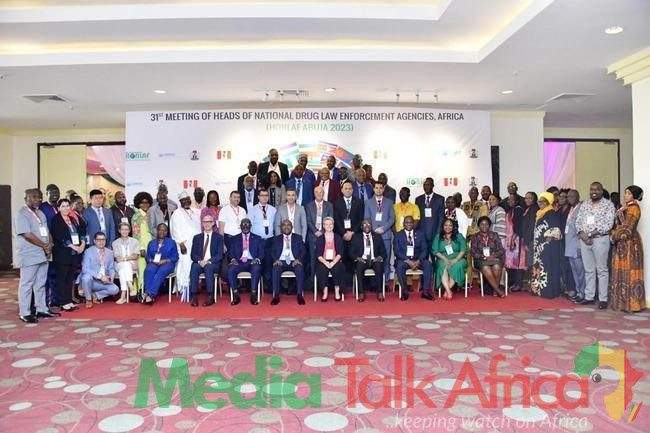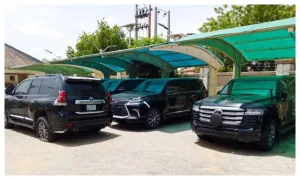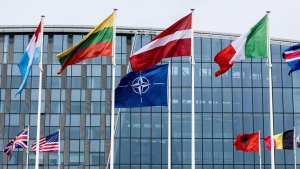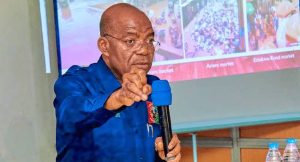Heads of drug law enforcement agencies in Africa have called for the establishment of specialized courts to handle drug cases and other organized crimes across the continent. This recommendation was made at the conclusion of the 31st Meeting of Heads of National Drug Law Enforcement Agencies, Africa (HONLAF), held in Abuja, Nigeria.
The leaders of these agencies emphasized the need for governments to consider setting up national specialized courts and asset recovery offices that deal specifically with organized crime, money laundering, and the management of proceeds from crime. They also urged African governments to fully utilize existing regional and international cooperation instruments to facilitate investigations and prosecutions related to drug crimes and money laundering.
Among the recommended cooperation instruments are the West African Network of Central Authorities and Prosecutors (WACAP), the Asset Recovery Inter-Agency Network for Southern Africa (ARINSA), the Asset Recovery Inter-Agency Network of West Africa (ARINWA), and the UNODC CRIMJUST programme.
The Heads of National Drug Law Enforcement Agencies in Africa also encouraged governments to promote cooperation and the sharing of best practices in the confiscation of proceeds from crime, particularly those related to drug cases. In addition, they highlighted the importance of adopting sufficient legal and regulatory frameworks regarding virtual assets, including cryptocurrencies, to prevent their use in drug-related crimes and money laundering.
Another recommendation from the HONLAF working group was for African governments to develop and implement drug policy responses that address the environmental impact of illicit crop cultivation, drug manufacturing, and drug use. The recommendations emphasized the importance of involving indigenous people, youth groups, and local communities in protecting land, forest reserves, and water sources, aligning with their interests and needs.
The HONLAF further urged countries to promote research and monitoring systems to gather data on the environmental impact of drug-related activities, allowing for evidence-based interventions and impact assessments. Governments were also encouraged to enhance their capacity to safely dispose of seized drugs, chemicals, precursors, and drug waste, utilizing guidance from relevant national organizations and the UNODC.
Meanwhile, during the meeting, delegates and participants were treated to a gala dinner hosted by the National Drug Law Enforcement Agency (NDLEA). The special guest of honor, Senator George Akume, Secretary to the Government of the Federation, urged attendees to implement the agreements reached during the conference.






